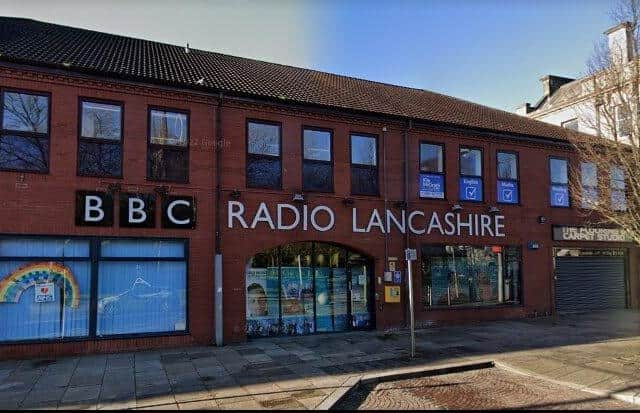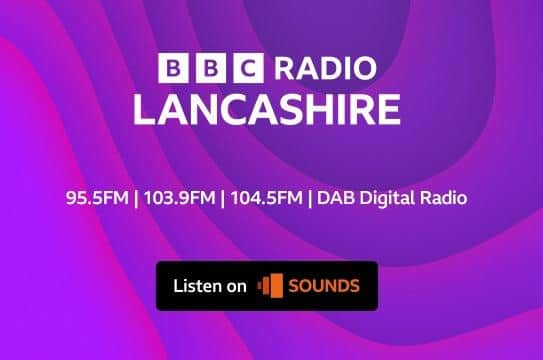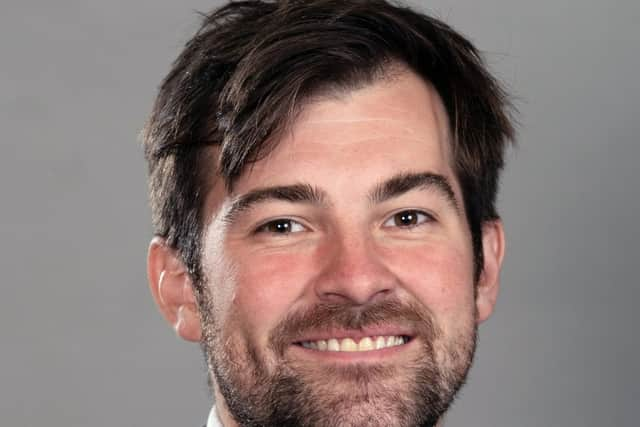Politicians rally round Radio Lancashire as shake-up puts presenters and local shows at risk
and live on Freeview channel 276
Lancashire County Council members unanimously backed a demand from one of their number for the authority to write to the Beeb’s director general championing the station’s role at the heart of the community – and its “impartial journalism”
In a notice of motion brought by Morecambe South representative Charlie Edwards, County Hall resolved that the letter should “highlight the impact BBC Radio Lancashire has on our community and ensure that it is adequately resourced”.
Advertisement
Hide AdAdvertisement
Hide AdIt comes against the backdrop of a huge planned shake-up of the BBC local radio network across England, which will see the volume of content produced solely for its 39 different outlets – including Radio Lancashire – slashed.


Under the changes, just two entirely local shows would remain on weekdays – the breakfast and mid-morning slots, which run from 6am until 2pm.
During the afternoon, stations would be paired up to produce a single drivetime programme across a wider area – in Radio Lancashire’s case, joining forces with neighbouring Radio Cumbria – while evenings would see content shared across an even broader patch, with 10 shows generated for the 39 catchments.
The final local radio slot of the day – 10pm until 1am – would become a single networked show for the whole of England. Currently, Radio Lancashire already shares that show with Radio Cumbria.
Advertisement
Hide AdAdvertisement
Hide AdThe situation is even more stark at the weekend, with most stations due to get almost no wholly local programming, except for live sports coverage, which will also continue to be provided during the week when local teams are in action. Outside of sport, Saturdays and Sundays on stations like Radio Lancashire will largely be made up of regional or national content


The schedule of local news bulletins will not be affected – either during the week or at weekends – with these being inserted into shows that are being shared between multiple stations, in order to ensure the same level of on-the-hour local news coverage as is currently provided.
Existing presenters – irrespective of their current slots or status – have had to reapply for their jobs in order to secure one of the reduced number of roles available. In other parts of the country, popular and long-serving local names have already announced their departures on air and online – to the shock of dedicated listeners.
Radio Lancashire veteran Steve Barker, who presented the On The Wire alternative music show on the station for 39 years, left the Blackburn-based outlet in May with a warning that listeners would be “surprised, shocked and alienated by the forthcoming changes which, by and large, they know nothing about”.
Advertisement
Hide AdAdvertisement
Hide AdThe BBC says that it is redeploying its resources so that it can provide more digital local content to reflect changing consumption habits amongst licence fee payers. It is also investing in 11 new investigative teams.


Although County Cllr Edwards’ motion did not directly reference the plans – which have so far sparked two walkouts by members of the National Union of Journalists, which hit Radio Lancashire’s own output, as well as the BBC’s regional TV news – he said that it was important to acknowledge that Lancashire’s local station had been a “valued part of the community for over 50 years”.
“Local radio and journalism elevates and champions the very best events, volunteers, groups and campaigns in our community. Radio Lancashire has recently celebrated 50 years of doing just that – and I think it is important that our council recognises this.
“Its annual Pride of Lancashire awards are an opportunity to shine a light on groups and organisations that work day in, day out for our county.
Advertisement
Hide AdAdvertisement
Hide Ad“People like [breakfast show presenter] Graham Liver can switch in an instant from light-hearted chat to hard-headed…world-class…award-winning journalism, right here on our doorstep. [The station also] travels the length and breadth of the country following our county’s sports teams.


“In a world of deep fakes, Chat GPT, mistrust and growing unrest in an uneasy world, impartial reporting of the facts and free speech have never been more important – and I think our council will do right to celebrate the champions of Lancashire today,” County Cllr Edwards added, to supportive noises from across the chamber.
Seconding her Conservative colleague’s motion, Rossendale South member Anne Cheetham said that radio was “one of my best friends”.
“Radio is one of the greatest inventions that we have. I wake up with it in the morning [on Radio 4 or 5]… and then we go straight into [Radio] Lancashire, where we come back to the basics – can we move in Lancashire, can we get the bus, can we get the train to start our days off?
Advertisement
Hide AdAdvertisement
Hide Ad“I think communication is one of the greatest features of how we express ourselves…and I appreciate that radio stations don’t have the easiest of tasks and we have lost one or two community radio stations …so we must use it, but we must not lose it.
“Because although people from London always seem to think they know better than the North, we have produced from this county…laughter, drama and good knowledge of what is going on.
“The greatest challenge now is to make sure that the younger generations realise that radio is not [just] for music, but also for…communication,” County Cllr Cheetham said.


According to the latest industry figures, Radio Lancashire reached 160,000 listeners during the first three months of 2023 – 13 percent of its potential audience. The station accounted for 5.9 percent of all radio listening in the county during the same period.
Advertisement
Hide AdAdvertisement
Hide AdBBC director general Tim Davie – who will receive the letter from the county council singing the praises of Radio Lancashire – told members of the House of Commons’ culture, media and sport select committee last month that the planned local radio changes were “the right thing”, but admitted that they were proving “very difficult and unpopular”.
He also stressed that the corporation was listening to concerns it had received and had “already made some adjustments to our plans to make sure we’re making the right choices with very limited money”. Earlier this year, the Radio Today website reported that community programming for ethnic minority audiences would be found a new home in the local radio schedules and the number of such shows broadcast across the country increased.
In a statement after the meeting at County Hall, Lancashire County Council leader Phillippa Williamson said that the authority “wholeheartedly support[s] the valuable work the local media undertakes and welcome the scrutiny they bring”.
“Local journalists play a huge role in championing communities, ensuring they are informed and hold power to account. The media also works closely with us on many important issues that affect them.
Advertisement
Hide AdAdvertisement
Hide Ad“This collaboration is especially evident during times of crisis, such as flooding, major incidents and the Covid-19 pandemic – with the media playing a fundamental role in helping to inform the public throughout.”
Commercially funded local radio has also undergone wholesale changes over the past decade – including here in Lancashire.
Former Blackpool station Radio Wave was subsumed into the national Greatest Hits Radio network in 2020, while 2BR – which covered most of the county by the time of its demise in 2019 – became part of the Capital brand.
Rock FM, formerly based in Preston, now has only one local show per day at breakfast – broadcast from Manchester – while its one-time sister station Red Rose Radio has long been part of a national network – initially Magic and, since 2019, Greatest Hits Radio.
Advertisement
Hide AdAdvertisement
Hide AdThe Bay, which served North Lancashire from its launch in 1993, became part of the Heart network in 2018 and lost the few local shows which remained after that transition just a year later.
SCHEDULE SHAKEDOWN
Under the plans, this is how Radio Lancashire’s revised line-up would look:
Monday to Friday
6am – 2pm: local shows just for Radio Lancashire listeners
2pm – 6pm: shared programming with Radio Cumbria
6pm – 10pm*: regional show broadcast across the North West
10pm – 1am: single national show broadcast across England
1am – 6am: simulcast with Radio 5 Live
* except for evenings when Radio Lancashire would be broadcasting local sports coverage
Saturdays
6am – 10am: regional show broadcast across most of the North West
10am – 2pm: shared programming with Radio Cumbria
2pm – 6pm: sport (dedicated Radio Lancashire programme)
6pm – 10 pm: regional show broadcast across the North West
10pm to 1am: single national show broadcast across England
1am – 6am: simulcast with Radio 5 Live
Sundays
Advertisement
Hide AdAdvertisement
Hide Ad6am – 10am: regional show broadcast across most of the North West
10am – 2pm: shared programming with Radio Cumbria
2pm – 1am*: single national show broadcast across England
1am – 6am: simulcast with Radio 5 Live
* except for times when Radio Lancashire would be broadcasting local sports coverage
Source: Radio Today